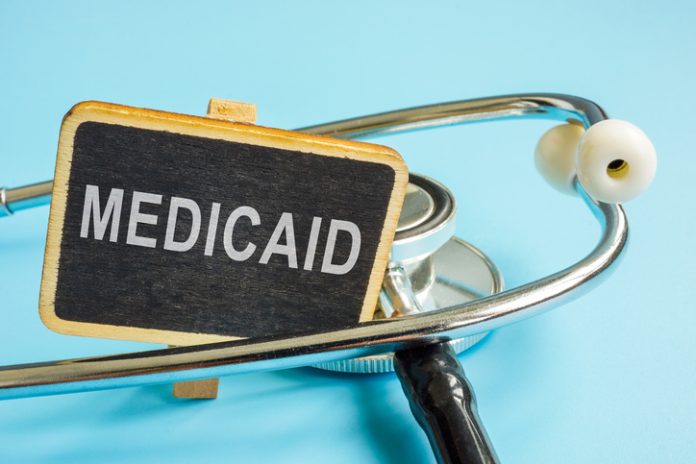The suspension of Medicaid eligibility requirements during the COVID-19 pandemic created confusion among both Medicaid recipients and government officials over who was enrolled in the program, according to a new report by Health Affairs.
“Continuous coverage” was the term coined by Congress that allowed low-income people enrolling in Medicaid, beginning in March 2020, to remain in the program for the duration of the public health emergency, even if their incomes no longer qualified them as beneficiaries.
However, with the expiration of the continuous coverage provision on March 31, 2023, states were required to begin disenrolling beneficiaries who no longer qualified for the program.
‘Medicaid Undercount’
Addressing the effect of on-again, off-again pandemic-related Medicaid enrollment policies, the Health Affairs report highlights the difference between Medicaid participation self-reported in government surveys and administrative records of Medicaid enrollment.
“The difference between the two is known as the ‘Medicaid Undercount,’” states the report. “We estimated that nearly half of the 5.9 million people who we projected were likely to become ‘unwound,’ already reported that they were uninsured in the 2022 Current Population Survey. This finding suggests that the impact of ending the continuous coverage provision on the estimated uninsurance rate, based on self-reported survey data, may have been smaller than anticipated,” Health Affairs explains.
“It also means that efforts to address Medicaid unwinding should include people who likely remain eligible for Medicaid but believe they are already uninsured,” the report concludes.
A similar study published April 5 in JAMA Health Forum also confirms unrecognized Medicaid coverage. The authors compared self-reported Medicaid coverage to actual Medicaid enrolment using self-reporting in the American Community Survey. Self-reported Medicaid was far lower than actual enrollment
Disenrollment Worries
Confusion over the number of people enrolled in Medicaid, together with the expiration of continuous coverage, sparked fears that the U.S. health system would be flooded with uninsured former beneficiaries.
For example, KFF (formerly the Kaiser Family Foundation) reported in April 2024 that more than 20 million people have been disenrolled during the “unwinding” process.
“Three-fourths of those who were disenrolled from Medicaid say they were worried about their physical health while six in ten say they were worried about their mental health,” reported KFF. “Additionally, a majority (56%) say they skipped or delayed getting health care services or prescriptions while attempting to renew their coverage (13% of total enrollees).”
From Medicaid to Obamacare
Many of those disenrolled from Medicaid wound up obtaining coverage in heavily subsidized Obamacare plans. This boosted Obamacare signups by the end of the 2024 open enrollment period to 21.3 million, a 30 percent rise from 2023 levels.
President Biden was quick to take credit for the development, saying in a January 24 statement, “My actions to protect the Affordable Care Act and lower premiums continue to make a difference.”
Fraudulent Signups
A study released in June by the Paragon Health Institute uncovered widespread fraud in Obamacare signups during the 2024 enrollment period. The study, “The Great Obamacare Enrollment Fraud,” found that nearly half the people signing up “reported income between 100 percent and 150 percent FPL (federal poverty level), qualifying for fully subsidized, 94 percent actuarial value plans.”
The percentage of people signing up who report income in this range increased substantially after the enhanced pandemic subsidies took effect and in some states exceeded the eligible population in such households, states the study.
“Overall, fraudulent exchange enrollment appears to be a significant problem in nearly half the states,” the Paragon study states. “We estimate that fraudulent enrollment at 100 percent to 150 percent FPL is likely upwards of four to five million people in 2024.”
Game of Deception
Enrollment in Medicaid or Obamacare is not the same as having access to quality health care. Many Americans, especially those with limited means, choose alternatives, such as short-term plans, indemnity plans, and no-insurance direct care.
Jeff Stier, senior fellow at the Center for Consumer Choice, suggests the confusion over Medicaid enrollment may be a ploy by the administration to mislead the public.
“At first blush, it appears the Biden administration is playing a shell game between Medicaid and Obamacare enrollment,” Stier told Health Care News. “But upon further analysis, it is just playing a different game of deception. While our eyes are focused on these two inefficient government-run systems, we lose focus on the ball representing more efficiency, more patient choice, and a pathway to more affordable health care. That ball is the category we are being distracted from—the ball of market-based health care.”
The study points to a bigger problem than people not realizing they are covered. “The problem is when no premium is required, agents (and maybe providers) have incentives to enroll people on paper, even without their knowledge,” said John C. Goodman, the president of the Goodman Institute for Public Policy Research and the co-publisher of Health Care News.
Goodman says there are enrollees in plans on the Obamacare exchanges are paying no premium. “An agent can sign them up without their knowledge and collect a commission for doing so. The Paragon Health Institute has recently reported on this.”
Bonner Russell Cohen, Ph.D. (bcohen@nationalcenter.org) is a senior fellow at the National Center for Public Policy Research.





















